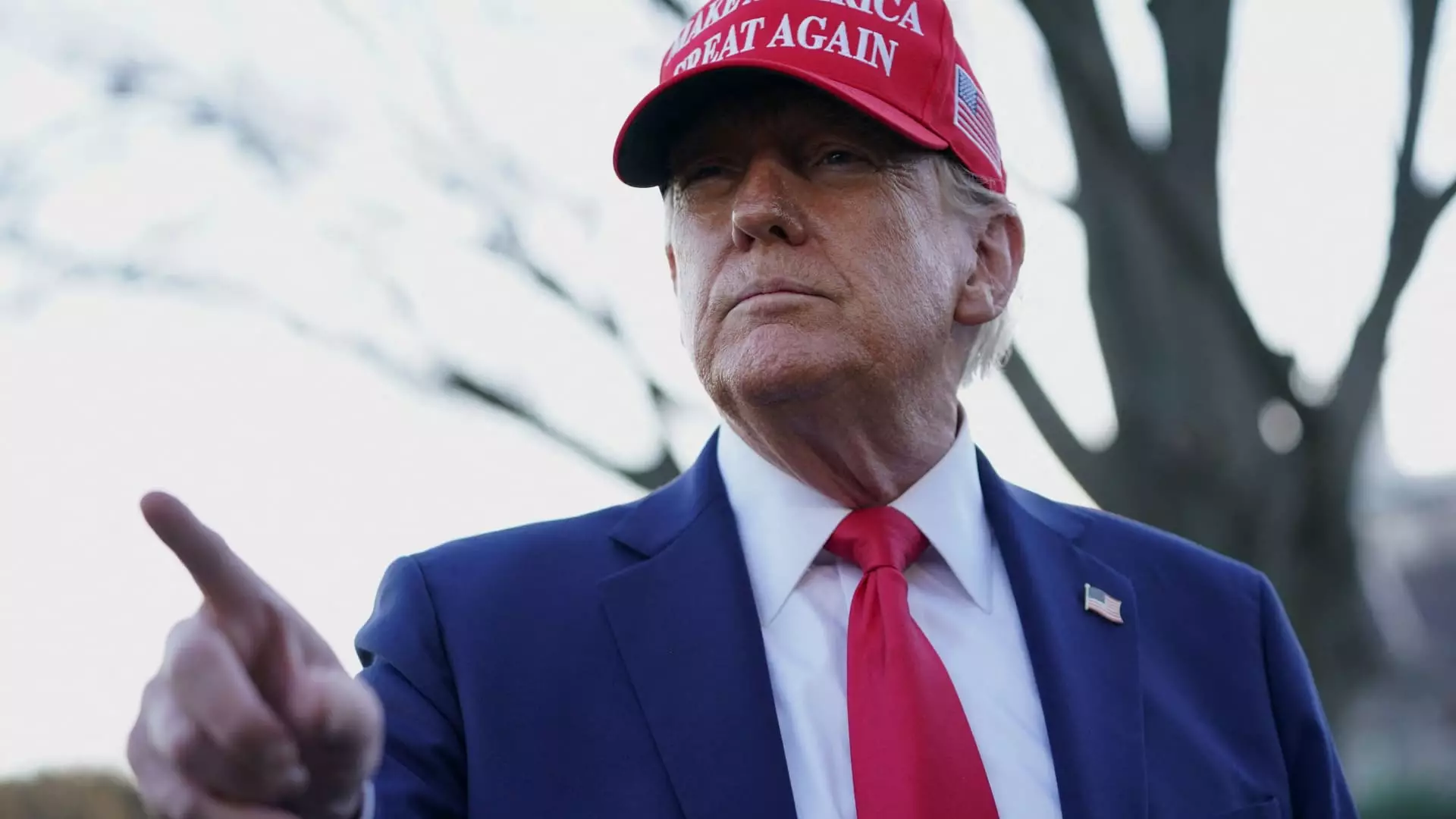In a significant legal move, the Trump Organization has initiated a lawsuit against Capital One for the unexplained closure of over 300 bank accounts. This situation not only underscores the growing divide in American society but also raises pertinent questions about the motivations behind corporate decisions in a politically charged atmosphere. The allegations levelled by the Trump Organization suggest that Capital One’s actions were not merely business decisions but rather politically motivated maneuvers aimed at distancing the bank from the controversial legacy of Donald Trump and the events leading up to the Capitol riot on January 6, 2021.
Such a lawsuit serves as a bellwether for the ongoing culture wars that have seeped into every aspect of American life, including banking. It reveals a concerning trend where financial institutions may weigh political sentiments over longstanding customer relations. Eric Trump’s comments about the closure being an affront to free speech resonate with many who feel their political beliefs are under threat in the current climate. This situation forces us to reconsider the consequences of corporate autonomy when it intersects with the world of politics.
Wokeness vs. Business Ethics: A Conflicted Narrative
The term “woke,” often weaponized in political discourse, comes to the front of the conversation in the Trump Organization’s lawsuit. By implicating “woke beliefs” as the rationale behind the bank’s decision, the organization seems to frame their plight as one of martyrdom in the face of a rising progressive tide. This approach, while emotionally resonant for some, risks trivializing the serious considerations that businesses must weigh when associating with entities embroiled in controversy.
Capital One’s firm denial of political bias in their account closures brings to light the complexities of corporate responsibility. Are financial institutions obligated to serve all clients equally, regardless of their political associations? Or do they have a right—and even a responsibility—to distance themselves from entities that may harm their brand image? As businesses increasingly position themselves within the ethical landscape, this situation provides a poignant example of the tightrope they must walk—maintaining brand integrity while ensuring access to services.
Impact on the Political Landscape of Banking
This legal dispute represents more than just a clash between a powerful entity and a financial institution; it offers insight into how political affiliations now carry significant weight in commercial relationships. If Capital One can close the accounts of a political player like Trump’s organization based on perceived societal shifts, what does this mean for the average consumer? Are individuals now subject to scrutiny by their financial institutions based on their personal beliefs?
The ramifications could be profound. As customers, we rely on banks to provide more than just services; they are custodians of our financial futures. The fear that they might act against customers for political reasons could hinder many from expressing their views or associating with politically charged figures—a subtle yet pervasive form of censorship.
Ultimately, this case is not just about a bank’s legal responsibility but also encapsulates the broader struggle for political expression and corporate accountability in modern America. The courtroom will likely serve as a proxy for an ideological battle, with implications extending far beyond the walls of a courtroom.



Leave a Reply